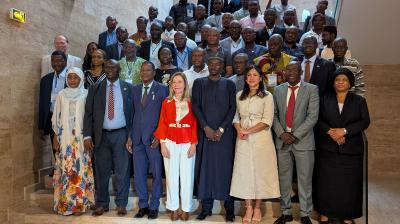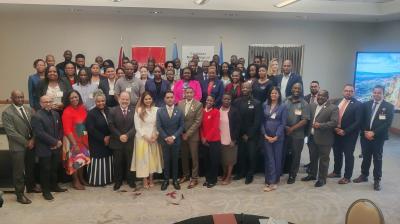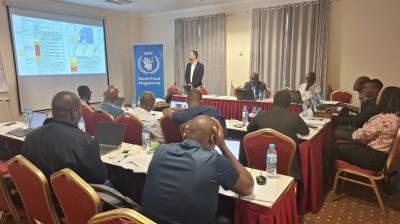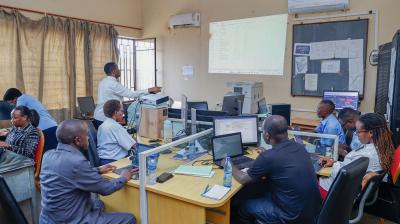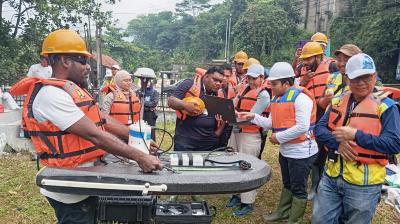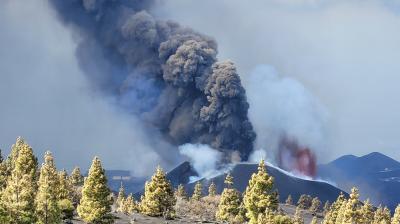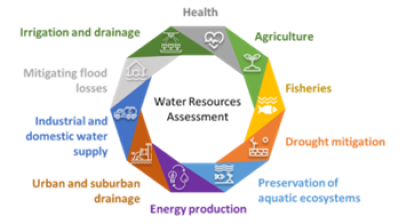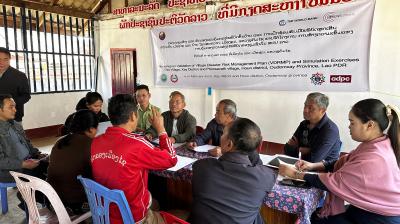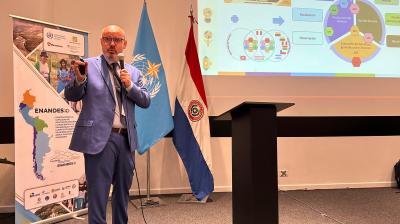WMO experts advance action on water and early warnings
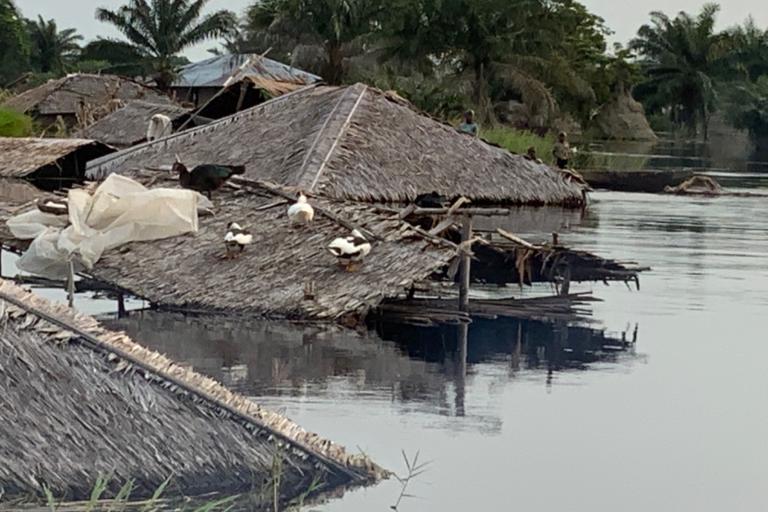
The need for concerted action was underlined once again by a series of flooding disasters which caused disruption, many casualties and huge economic losses in different parts of the world.
The overwhelming majority of disasters are water-related and so water management and monitoring lies at the heart of the drive spearheaded by UN Secretary-General António Guterres to ensure that everyone is covered by Early Warning Systems by the end of 2027.
Many of the 30 countries targeted for priority action in Early Warnings for All suffered from major floods or droughts in 2022. Not a single country had timely and accurate hydrological data available to support evidence-based decision-making and early action, according to WMO’s State of the Global Water Resources report.
Mauritius – one of the 30 focus countries was hit by devastating tropical cyclone-related flooding on 15 January.
Congo
The Congo Basin is suffering its worst flooding in nearly six decades.
Extreme rainfall since October last year burst the banks around the Ubangi River – one of the three major rivers feeding into the Congo Basin. A flood emergency was officially declared by the Government on 29 December.
The Office for the Coordination of Humanitarian Affairs said on 19 January that more than 350,000 people need humanitarian assistance in Congo, where nine out of the country's 12 departments remain under water. Many villages can only be reached by boat or canoe and huge swathes of productive agricultural land are flooded.
The situation is equally dire in parts of the Democratic Republic of the Congo.
Dr Jean Bienvenue Dinga, Director of the National Hydrological Service of Congo, said that it is the most exceptional event since the catastrophic floods of December 1961.
In the 1961 floods, there was a measured discharge of 80,000 cubic meters per second into the Congo Basin. By comparison, on 9 January, it was 75,000 cubic meters per second.
The heavy rains, which are typical of El Niño impacts, were predicted in the seasonal forecast for October-November-December. But lack of resources and equipment hampered efforts to save livelihoods and lives, said Dr Dinga, who attended a Hydrological Coordination Panel meeting in Geneva.
“We want to strengthen early warning systems in line with the Early Warnings for All initiative. But the problem is lack of funding. If we had funding, it would be different,” said Dr Dinga.
In 1995 there were 80 hydrological monitoring stations. Now there are just 13, due to lack of funding.
Many other countries are suffering a decline in the hydrological monitoring network and a reduction in available observational data.
Hydrological Coordination Panel
The WMO Hydrological Status and Outlook System (HydroSOS), which is currently under technical development and regional implementation, seeks to meet this challenge. The World Hydrological Cycle Observing System, the WMO Information System and WMO Integrated Processing and Prediction System also provide support.
All these WMO activities fall under the responsibility of the Hydrological Coordination Panel, the WMO think tank on hydrology. The panel integrates the hydrological work of WMO into the wider global water agenda and works to promote WMO’s long-term ambitions on water.
These are:
- No one is surprised by a flood
- Everyone is prepared for drought
- Hydroclimate and meteorological data support the food security agenda
- High-quality data supports science
- Science provides a sound basis for operational hydrology
- We have a thorough knowledge of the water resources of our world
- Sustainable development is supported by hydrological information
- Water quality is known
Early Warnings for All
An expert team on Early Warning Services separately met at WMO to try to accelerate action on the Early Warnings For All initiative.
Early warning services are proven, effective climate adaptation measures, that save lives and provide at least a tenfold return on investment. However, only half of countries have early warning systems in place with coverage especially low in Small Island Developing States (SIDS), Least Developed Countries (LDCs) and in Africa.
The Early Warnings for All initiative is spearheaded by WMO, the UN Office for Disaster Risk Reduction, International Telecommunications Union, International Federation of Red Cross and Red Crescent Societies, with support from more than twenty other UN agencies as well as a very wide range of stakeholders, from financial institutions to private sectors.
- WMO Member:
- Congo ,
- Democratic Republic of the Congo ,
- Mauritius
- Region:
- Region I: Africa


